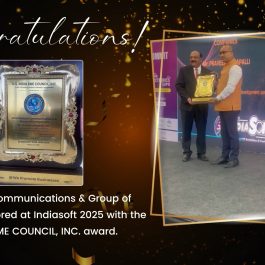4 min read
Table of Contents
Leadership Excellence:
Leadership excellence is the capacity of a leader to motivate, empower, and direct a group of people toward a shared objective while exemplifying a high degree of competence, integrity, and emotional intelligence.
Strong relationships with their team, sound judgment in their decisions, and effective Leadership Communication Skills that reflect their vision and values are all characteristics of leaders who demonstrate leadership excellence.
These leaders remain committed to their objectives and exhibit a positive outlook as they adjust to new situations and difficulties.
The Fundamentals Of Excellent Leadership
Excellence in leadership is the capacity to identify potential and foster a supportive and empowering environment. A vital component of this is encouraging self-management through a strong self-awareness and comprehension of the value of collaboration and teamwork.
Leaders can foster the following five essential qualities in staff members to encourage well-being and engagement at work.
- Self-confidence: The level of self-assurance and value employees place in their skills and selves
- Monitoring: The degree to which employees feel in control of their environment, work, and decision-making
- Orientation: The compatibility of employees’ objectives and values with those of the company
- Attachment: How well employees get along with their coworkers, managers, and the organization.
- Recreation: Having pleasant feelings and enjoying oneself at work
You can assist your team in identifying and developing their talents while also providing the necessary support and resources through effective communication skills for leaders and clear guidance. By getting to know each team member, you can foster a culture of open communication, trust, and respect, which will increase team motivation and productivity.
The Best Way To Practice Leadership Excellence
To achieve the desired results of leadership excellence, various tactics can create a positive and supportive environment that allows individuals and groups to realize their full potential.
- Restate the significance and goal: The key is assisting employees in realizing the value and importance of their work. Managers can increase employee engagement by assisting staff members in finding fulfilment in their work. It may entail coordinating employee objectives with business objectives, establishing channels for employee input and feedback, and fostering cooperation. Another strategy is offering employees chances to make a difference and further the organization’s goals.
- Create strong bonds: Leaders can ensure that teams get along well by fostering an inclusive and respectful work environment. It can entail promoting open communication, offering chances for team-building activities and social gatherings, and appreciating employee input and viewpoints.
- Recognize and honor achievements: Employee job satisfaction dramatically depends on recognition. It can be achieved by offering professional development and growth opportunities, giving regular feedback, and fostering a culture of gratitude.
In the end, employees must view their accomplishments through the prism of their efforts if they are to develop to their fullest potential. Their empowerment can help them achieve that objective.
The Advantages Of Excellent Leadership
Leaders who are conscious of and uphold organizational values can foster an environment where team members feel respected and free to express their opinions. As a result, there is more cooperation, engagement, and dedication.
Leaders with this competency pay close attention to casual interactions and see employees from various departments get to know one another better.
Establishing a personal and open culture of discussion, which promotes a relaxed problem-solving attitude when handling conflicts, can help employees become more attached to shared initiatives.
Additionally, exemplary leadership empowers organizations. Teams with motivating leaders can better spot opportunities, seize them, and create winning strategies. By doing this, their beneficial effects on the company are maximized.
Businesses that foster a culture of leadership excellence are likely to experience higher productivity, happier clients, and tremendous financial success. A solid, prosperous, and long-lasting organization is the result.
Finally, fostering excellence in leadership has significant advantages and benefits for leaders. The more a leader sees it as part of their responsibility to ensure workers find meaning in their work, the more resilient they will be. And the more readily they can overcome obstacles and setbacks in the workplace.
Strengthening Leadership Qualities
Influential leaders exhibit common traits. A few inspiring leadership qualities are as follows:
They take the time to explain the overall objective and the value each team member has in achieving it, constantly reminding others of the vision. Employees can then appreciate the significance of their job and be inspired to perform at their highest level.
They can communicate clearly. People who are empowered as leaders are constantly adjusting to new communication techniques. Role of communication in Leadership take the initiative to implement improved communication channels for the benefit of the entire staff, whether via email, phone, text, or an app. They can then be on hand to help the team overcome any problems or questions.
They assign tasks efficiently. Building trust through delegation fosters empowerment. By granting others the freedom to choose how to complete their tasks and meet their deadlines, empowered leaders demonstrate their trust in them and help to avoid bottlenecking.
They recognize the importance of each member of the team. Empowering leaders are aware that each team member was selected to raise the value of the group as a whole and is, therefore, necessary to reach the objective. By taking feedback seriously and acting on it, they demonstrate their value to their staff.
They understand worth. Leaders who empower others are aware of the value each employee brings and are quick to express it. Leaders know that reward fosters confidence and enables the worker to become more effective through repetition, whether through open or private acknowledgement. A positive workplace culture is developed when the staff’s behavior or attitude is openly acknowledged.
Conclusion: A Tool For Empowerment Is Leadership Excellence
Employee motivation heavily depends on their capacity to sway circumstances with their competence. Everyone can work together to build a solid and effective team when they are free to own their roles and responsibilities.
Leadership strategy and tactics raise awareness of these accomplishments by assisting individuals in identifying their personal growth goals and showcasing their contributions to team and organizational success. A leader can establish an environment of excellence that produces favorable and long-lasting results by communicating clearly and rewarding their team members.
Receive more captivating articles like this and explore our expert digital marketing services.
Published: August 8th, 2023






